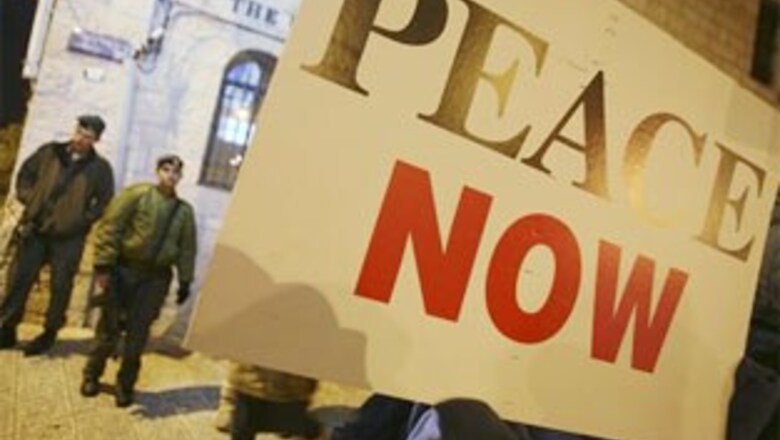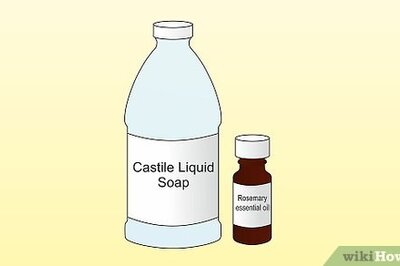
views
Gaza City: Israeli troops, some smiling and dancing, began to withdraw from the Gaza Strip Sunday after Israel and Hamas militants declared an end to their three-week war. But neither side achieved long-term goals and the burden of consolidating the fragile calm fell to world leaders.
The truce brought relief to Gaza's citizens, who took stock of the devastation in relative safety for the first time since Israel launched a December 27 offensive. And it brought more trauma, as rescue workers in surgical masks ventured into what were once no-go areas and pulled 100 bodies from buildings pulverised by bombs.
"We've pulled out my nephew, but I don't know how many are still under there," said Zayed Hadar, a resident of the northern town of Jebaliya as he sifted through the rubble of his flattened home.
Tension eased in southern Israel, the target of Palestinian rocket fire, even though Hamas launched nearly 20 rockets in a final salvo before announcing a cease-fire. Three Israelis were lightly wounded, while two Palestinians were killed in last-minute fighting, medics said.
Prime Minister Ehud Olmert said his country had no desire to stay in Gaza, a Mediterranean strip of 1.4 million people that was vacated by Israel in 2005 even though Gaza's airspace, coastal waters and border crossings remained under Israeli control.
"We didn't set out to conquer Gaza, we didn't set out to control Gaza, we don't want to remain in Gaza and we intend on leaving Gaza as fast as possible," Olmert said at a dinner in Jerusalem with the leaders of Britain, France, Germany and Spain. A swift withdrawal would reduce the likelihood of clashes between militants and Israeli troops that could rupture the truce.
The world welcomed the apparent end to the latest round of fighting in the Middle East. UN Secretary-General Ban Ki-moon urged a quick influx of humanitarian aid to the isolated enclave, and US Secretary of State Condoleezza Rice - in the final days of her tenure - said a cease-fire must be durable.
Iran, which has supplied rockets to Hamas, said a key to calm is the opening of border crossings that Israel and Egypt have kept virtually sealed since the militant group staged a violent takeover of Gaza in 2007. The comment by Foreign Minister Manouchehr Mottaki was a reminder that the tiny coastal territory of Gaza is just one piece of a larger conflict between Israel and regional enemies.
In Egypt, European and Arab leaders sought to prepare a long-term deal to solidify the truce. Delivering humanitarian aid to rebuild Gaza, opening its borders and choking off the flow of weapons into Gaza across Egypt's border and at sea - perhaps with an international naval force - emerged as key goals from their summit at the resort of Sharm el-Sheik.
The gathering, however, failed to deliver specifics on international monitors to stop weapons from reaching Gaza's Hamas rulers. Israel wants monitors, but Egypt has refused to have them on its side of the border.
Israel and Hamas do not recognise each other and declared cease-fires 12 hours apart after strenuous efforts by Egyptian mediators. The Israeli military warned that the next few days were critical and that any Hamas attacks would be met with harsh retaliation.
"Right now the operation hasn't ended," Major General Amir Eshel said. "It has just transitioned to a new phase, to hold fire. To give a chance to a cease-fire to take over and end this operation."
Israeli soldiers danced on top of a tank and gave "V'' for victory signs as they pulled out of Gaza, but the war moved to a close on an ambiguous note. Israel emerged as the winner in a battlefield sense, but its chief goals - a permanent end to rocket attacks on Israel and weapons smuggling into Gaza - will require hard diplomacy and sustained international cooperation to achieve success.
Hamas, meanwhile, lost hundreds of fighters and failed to turn Gaza into a graveyard for masses of Israeli troops, as it had promised. It hopes that its survival will boost its standing among Arab supporters as a foe, as well as righteous victim, of the Jewish state.


















Comments
0 comment